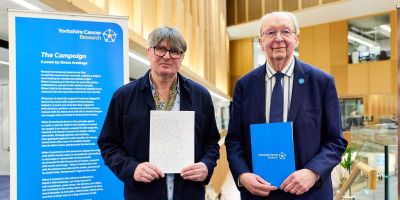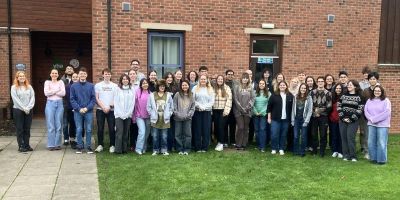Dr Chris Bell awarded prestigious Discovery Fellowship

Dr Bell, from the School of Biology, joins 21 other budding researchers who will take forward innovative projects as part of a three-year Discovery Fellowship programme.
The highly sought-after fellowship, granted by the Biotechnology and Biological Sciences Research Council (BBSRC), are offered to individuals who are poised to become outstanding leaders in their field.
The funding will allow Dr Bell to lead research into how plants allocate their resources to different soil organisms to promote beneficial interactions and aid crop production.
Throughout his time in Leeds, Dr Bell has worked with several genera of nematodes – roundworms - to understand their interaction with their host roots. Other work has centred around the faunal analysis of field trials in Uganda and identifying novel effector protein-protein interactions with the host plant.
To be successfully named as a Discovery Fellow, prospective candidates must demonstrate that they are undertaking ground-breaking science that has the potential to make real impact.
Dr Chris Bell, Discovery Fellow at University of Leeds, said:
“I’m incredibly excited to have been awarded this fellowship to further my research into host resource allocation. This is a highly competitive scheme which will enable me to make a real difference in this field. I’m looking forward to getting started.”
Dr David McAllister, Director of Talent, Inclusion and Funding Delivery at BBSRC, said:
“As the UK’s major public funder of bioscience research and innovation, BBSRC takes seriously its responsibility to invest in and develop talented individuals and teams.
“BBSRC’s Discovery Fellowship programme is well-established and renowned for not only supporting outstanding science, but for supporting and developing our future leaders.
“The 22 individuals named as BBSRC’s latest Discovery Fellows demonstrated their aptitude to deliver outstanding science as well as their capability and capacity as future bioscience leaders.
“We look forward to tracking their progress and success as they develop their skills, abilities and experiences for the wider benefit of UK bioscience.”




